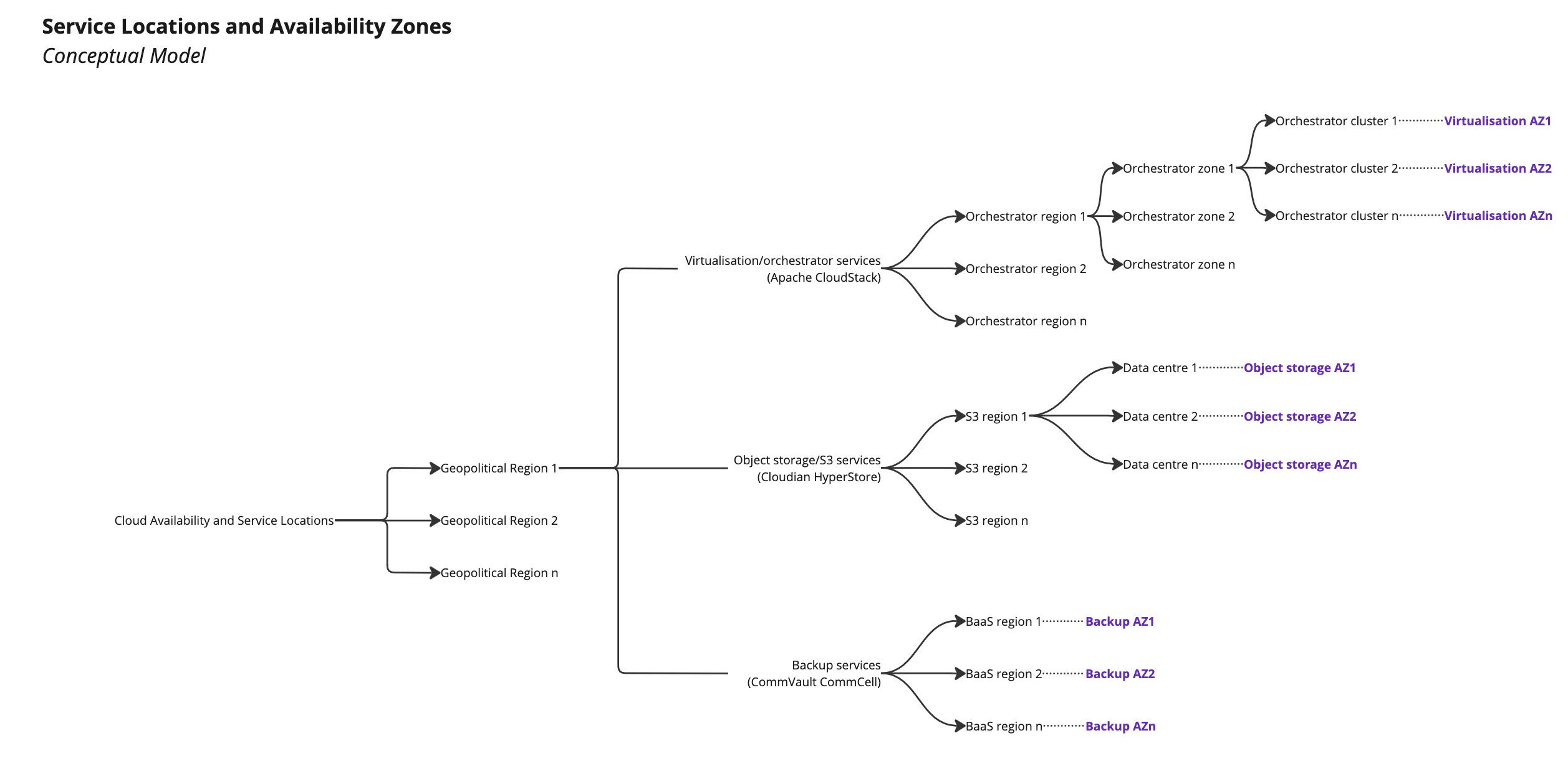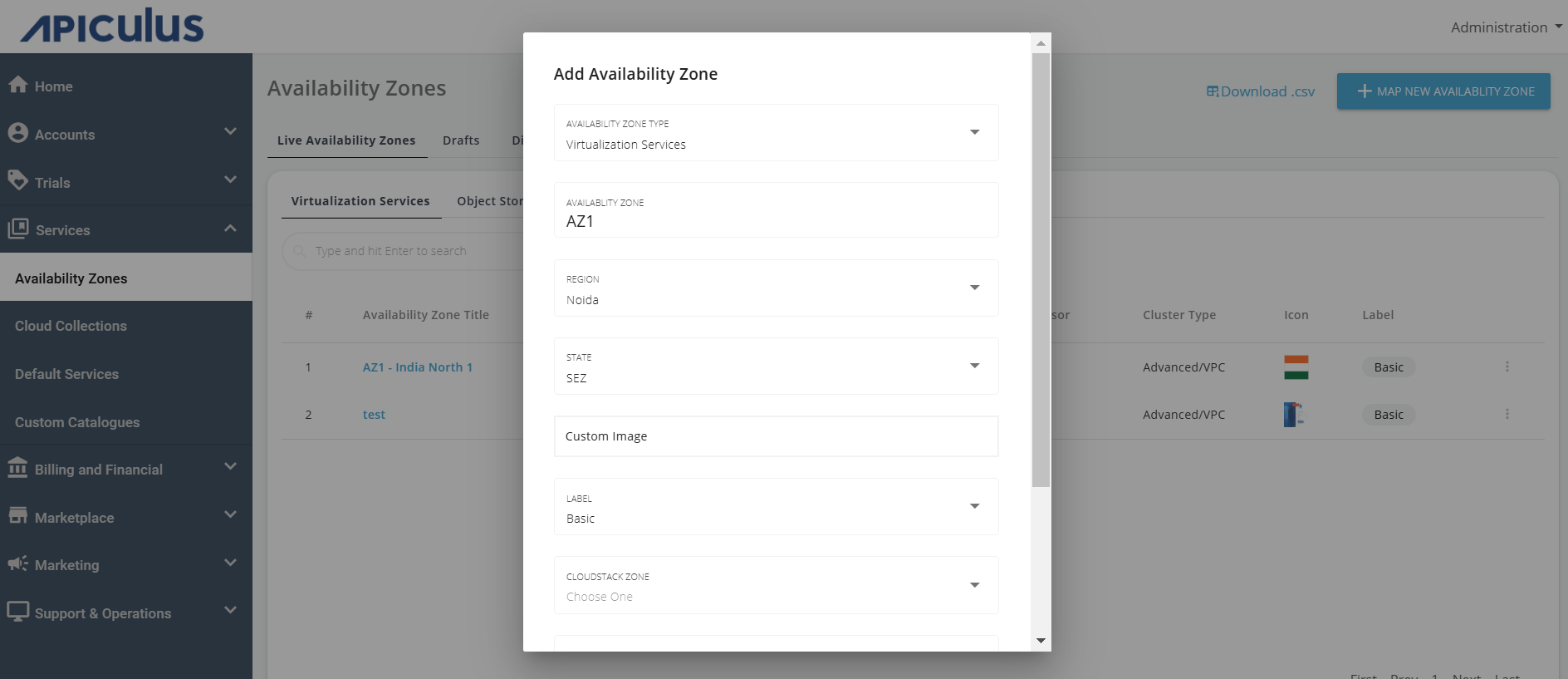Working with Availability Zones
Availability Zones (AZ) on Apiculus are a highly versatile and unique way of managing Service delivery and availability. Apiculus AZs are essentially control planes for underlying ISV, designed to handle a range of delivery scenarios. Apiculus AZs also take into account the limitations that an ISV may have (e.g., inability to manage multiple serviceable regions via a single management plane). In other words, Apiculus AZ can be seen as the 'delivery-level unification' of all underlying cloud services into a unified service topology.

The following is a description of AZ for each type of Service that uses AZ:
| Service | Availability Zone |
|---|---|
| Linux/Windows Instances | CloudStack-based |
| Block Volumes | |
| Virtual Private Clouds | |
| IPv4 Addresses | |
| Kubernetes | |
| Load Balancer Instances | |
| Virtual Firewall Instances | |
| Secondary Storage & Data Transfer | |
| Metal Instances | MAAS-based |
| Object Storage | HyperStore-based |
Mapping an Availability Zone
To map a new availability zone, navigate to Services > Availability Zones and click on the + MAP NEW AVAILABILITY ZONE button. The following screen appears: 
In the add Availability Zone window, enter the following details:
- AVAILABILITY ZONE - The name you want to display or call this availability Zone.
- REGION - Choose any of the listed regions. Data for these regions will be displayed as configured on the ACS.
- STATE - Choose the state.
- LABEL - Choose any of the available labels. Currently, there are two labels present, i.e., Basic and Premium.
- CLOUDSTACK ZONE - Choose any of the listed zones.
- HYPERVISOR - Choose any of the available hypervisors in the list.
- CLUSTER - Choose any of the available clusters from the list.
Once you have filled in the details and made the selections, click on the CREATE AVAILABILITY ZONE.
If you want to save these created Availability Zones as a draft, click on the SAVE AS DRAFT button and cancel the action, click on the CANCEL button.
Disabling or Deleting an AZ will cascade into all the Cloud Collections, Default Services and Custom Catalogues that use the AZ.
Currently, only the option to map CloudStack-based AZs is available on the Apiculus Admin Console UI. Support for other types of AZs is being developed.